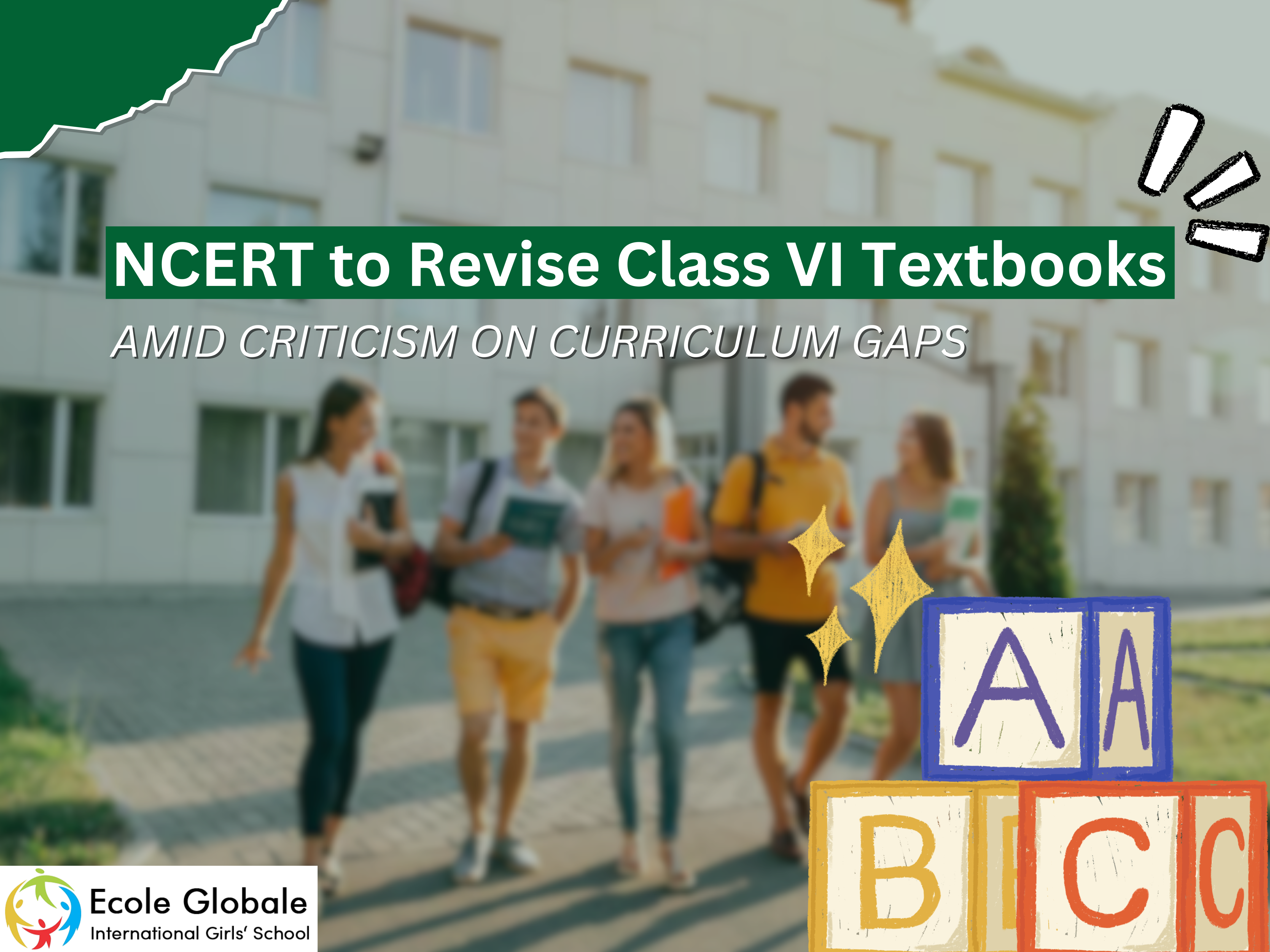The National Council of Educational Research and Training (NCERT) has announced plans to add new chapters to its recently revised Class VI mathematics and social science textbooks, responding to criticisms regarding the omission of essential content from the syllabus.
According to members of the National Syllabus and Teaching Learning Material Committee (NSTC), which develops educational materials for Classes III to XII, these additions aim to fill gaps left in the textbooks. However, specific details of the new content remain undisclosed.
Hasty Revise Class VI Under Scrutiny

The recently issued textbooks, released during the ongoing academic year, have faced scrutiny from educators and stakeholders who argue that the materials were published hastily, leading to crucial omissions.
The Class VI mathematics textbook, titled Ganita Prakash, was printed in August, four months after the academic session began, while the social science book, Exploring Society: India and Beyond, became available in July. Both books reportedly lack fundamental syllabus topics.
The new mathematics book, in particular, omits core subjects like decimals, algebra, and ratios, all of which are part of the Class VI curriculum.
Educators have raised concerns over the minimal number of practice exercises in the book, with some teachers encouraging students to use exercises from the previous year’s materials.
“We hope the NCERT will add more questions in the ‘Figure it Out’ section,” commented a schoolteacher.
An NSTC representative mentioned that chapters added to the mathematics textbook for the 2025-26 academic year would likely include decimals. However, further details were not provided.
Social Science Textbook Gaps and New Pedagogy

The Class VI social science book has faced similar critiques, with several key historical and social concepts excluded. Notable omissions include the transition from hunting-gathering to agriculture, Emperor Ashoka’s renunciation of war, and distinctions between rural and urban livelihoods.
Michel Danino, a prominent NSTC member and visiting professor at IIT Gandhinagar, acknowledged that plans to expand the social science curriculum were underway.
Danino explained that the new book was crafted using an innovative educational framework, which he described as a “completely different basis and wholly new pedagogical approach,” making comparisons with older editions less relevant.
Compliance with Education Standards

The Central Board of Secondary Education (CBSE), India’s largest school board, exclusively uses NCERT textbooks. Several state boards also incorporate these books into their curricula.
Ashok Agrawal, a member of Delhi University’s advisory council, voiced concerns over the revised textbooks’ compliance with the Right to Education Act, which mandates consistent standards in school education.
He questioned how students who missed foundational topics this year would adapt to the next grade’s curriculum.
Introduction of “Bagless” Days in Schools

Separately, the Directorate of Education (DoE) in Delhi issued a new circular outlining the implementation of “bagless” days across government and private schools.
Under this directive, students in Classes VI to VIII will have 10 designated “bagless” days, intended to reduce the physical burden of carrying textbooks and promote hands-on, activity-based learning. This initiative aligns with NCERT’s recommended guidelines.
As NCERT prepares for these updates, educators and parents remain cautiously optimistic that the revised textbooks will better align with the prescribed curriculum and adequately support student learning in subsequent years.









